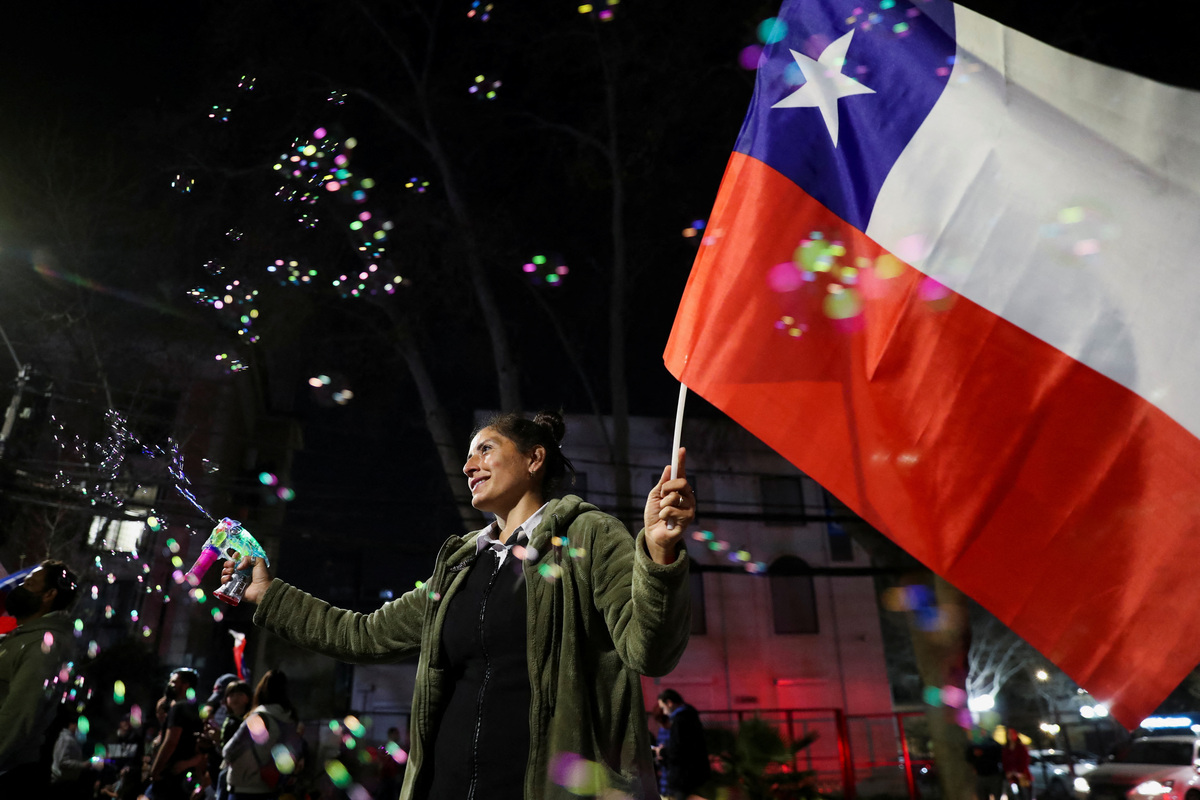MoS Margherita meets Ambassadors of Chile, Myanmar
Minister of State for External Affairs, Pabitra Margherita held a meeting with the Ambassador of Chile, Juan Angulo and He also held a meeting with the Ambassador of Myanmar to India, Zaw Oo.

Minister of State for External Affairs, Pabitra Margherita held a meeting with the Ambassador of Chile, Juan Angulo and He also held a meeting with the Ambassador of Myanmar to India, Zaw Oo.

Venezuela has called on the governments of Argentina, Chile, Costa Rica, Peru, Panama, the Dominican Republic and Uruguay to withdraw their diplomatic staff accredited in the country.

A clear majority of 55.76 per cent of Chileans voiced their disapproval of the proposed overhaul of a constitution that dates back to the era of dictator Augusto Pinochet.

The crash occurred at a railroad crossing, killing six of the 14 people on board the minibus on Friday

From Sunday 18 to Thursday 22, a delegation of senior economic authorities from Chile will be in India to explore new opportunities for growth and development between the two countries
The Chilean Football Federation last month filed a complaint with world football's governing body claiming that Ecuador's Byron Castillo is in fact Colombian, and has falsified his age.
His four-year term begins at a moment when a constituent assembly is drawing up a new constitution for the country to replace one adopted under Pinochet.
The present Constitution in Chile was crafted in 1980 by people who were handpicked by the then military ruler ~ Augusto Pinochet. It opened the country to mining investments and allowed water rights to be bought and sold. Over time, Chile prospered by exploiting its natural resources ~ copper, coal, salmon and avocados.
Chile’s early dalliance with neoliberalism also exposes how the latter requires extreme violence or ‘shocks’ — as Naomi Klein argues in The Shock Doctrine — to entrench itself. Klein traces how the massive upheaval the privatisation policies of neoliberal Chile triggered were only implemented under a draconian regime that rested on mass killings and torture which served as the ‘shock’ that allowed Chilean society to become more complaisant towards these radical economic changes.
With a larger mandate than his predecessors, Boric represents the forces that don't belong to the dominant traditional political compact since the 1990s. He is the first candidate in the post-Pinochet era to have won after coming second in the first round. His victory is largely seen as a rebellion against elitism